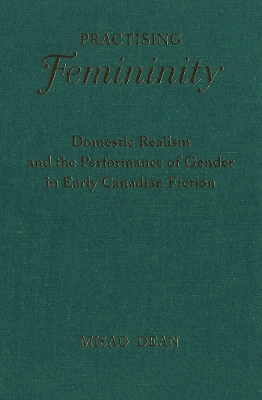Theory / Culture
1 total work
Femininity in Colonial Societies is a Particularly Contested Element of the sex/gender system while it draws on a conservative belief in universal and continuous values, it is undermined by the liberal rhetoric of freedom characteristic of the New World. Practising Femininity analyses the ways that Canadian texts by Catharine Parr Traill, Susanna Moodie, Nellie McClung, Sinclair Ross, and others work to produce and naturalize femininity in a colonial setting.Drawing on Judith Butler's definition of gender as performance, Misao Dean shows how practices that seem to transgress the feminine ideal -- emigration, physical labour, autobiographical writing, work for wages, sexual desire, and suffrage activism -- were justified by Canadian writers as legitimate expressions of an unvarying feminine inner self. Early Canadian writers cited a feminine gender ideal that emphasized love of home and adherence to duty; New Women and Suffrage writers defined sexuality as part of a biological desire to reproduce; in the work of Sinclair Ross, the feminine ideal was moulded by current Freudian models of femininity.This study is grounded in the most important current theories in gender, and will interest Canadian literary scholars, feminist historians and theoreticians, and students of women's studies.
